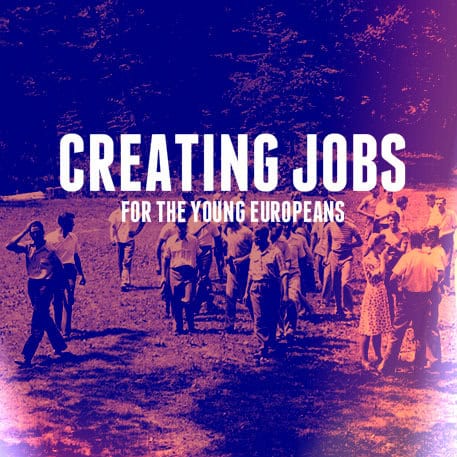We are a generation of highly educated, well informed and relentlessly motivated young people, who are ready to work. We feel more than any other social group, the great mismatch of our educational skills and the actual needs of today’s jobs. We are willing to walk the extra mile, should we see it is beneficial for all in the long term. We do not want youth employment measures to impact on the lives of pensioners, we do not want to rely on state funding or numerous social programmes, we just want bureaucracy and excessive taxation not to stand as an obstacle for job creation.
We call for:
1. Lowering taxation for companies that employ young people
We call on EU Member States to lower taxation on companies hiring employees under the age of 30. The standards for such a tax relief should be set according to a set percentage of employees younger than 30 years, depending on the standards of each member state. The system should be tax-neutral, meaning that the lost tax income following the relief corresponding to a number of young employees should not be higher than the cost of unemployment (for the state) for the same number of unemployed persons.
2. Closing the gap between higher education and the labour market
The mismatch between education skills and today’s jobs needs to be fixed mainly from the side of Education Institutions. We call on EU Education Ministers and Higher Education Institutions in the EU, to add apprenticeships and traineeships as mandatory integral parts of the curricula of all relevant studies and courses. Young people who graduate need to obtain working skills, not just knowledge. The updatability of departments and curricula should also be set as a priority.
3. Business incubators, venture capitals and zero bureaucracy for young entrepreneurs
We call for a Europe-wide business incubator project. This requires harmonization of legislation between EU Member States in terms of venture capital to increase cross-border investments and offering tax incentives for Angel Investors and seed funds to close the ‘equity cap’ at the early stage. A business
friendly environment for incubators will allow European startup ecosystems to focus on innovation, production and profit instead of funding procedures and bureaucracy for their early funding needs, registration and their overall relationship with the state. Part of the financing opportunities should come from the European Investment Bank and the 6 billion euros allocated in the MFF for youth employment measures, in a program for public-private partnerships for entrepreneurial companies with a young workforce.







